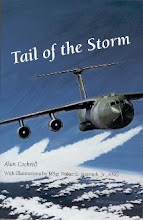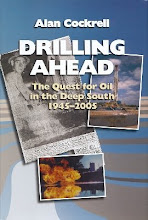Col. Ryan had told me there was trouble ahead for taking the plane with the nose wheel problem, and boy, was there. Moore never summoned me, but that
wasn’t necessarily a good sign. He chewed out Col. Ryan and our Ops officer, who
was my flight lead that day. Next day Col. Ryan called for me to report to his
office. In his laid-back Texas way, he never raised his voice or offered a hint
that he was mad at me. “Moore wanted to give you an Article 15,” he said. I froze. That
was a punitive action in the Uniform Code of Military Justice—just short of a
court martial. It was also a career killer.
He held up a letter. “I got it reduced to a Letter of
Reprimand.” He stared at me for a while. I was a quivering pile of jello. Then, to my astonishment and profound relief,
he tore it up and put it in his trash. “It won’t go in your file.”
I wondered if tearing up the letter in front of me—as well
as the Article 15 threat—were tactics just to get my attention, or whether Col.
Ryan did it on his own without Moore’s knowledge. Events that happened later
helped me figure it out. I was thankful to Col. Ryan for taking care of me,
but I knew I needed to keep my nose clean.
Col. Ryan retired a few weeks later, and I was sorry to
see him go. A stocky little 5’-5” Nebraskan replaced him, who liked to introduce himself as, “Hi,
I’m Stanley Schneider from Wahoo, Nebraska!” Stan, too, turned out to be a good
squadron commander and a great guy.
One very early morning I reported to the squadron to
begin my tour as the “Duty Officer.” It was also called Duty Pig. It was rotated
among the junior officers of the squadron. The Pig was charged with posting the
schedule, answering the phone and a whole other bunch of non-inspiring tasks.
I was the only person in the building that dark morning when Joe Moore walked
in, helmet and harness in hand. I knew he was scheduled to make a proficiency
flight that morning.
I was nervous when he came in, thinking he might lecture
me on the incident of a few weeks ago, but he only looked around and said, “Where’s
my wingman?” I looked on the scheduling board. Lt. Hawkins was scheduled. Hawk should
have been there by then. He was in big trouble. I said, “Colonel, he must have
over-slept. I’ll call his hooch right now.”
Moore studied the board, then me. “No. You’re coming. Get
your gear.”
I swallowed hard and hurried to the life support shop for
my gear. He briefed the flight and never said a word about what had happened
earlier. It was as if he had forgotten, but I knew better than that.
We took off and flew out to the training area for some wing
work. He maneuvered the A-7 hard, pulling 4-5 Gs and I hung in close as best I
could. Then we swapped leads and I gave him some wing time. We broke off and
headed back to base for practice instrument approaches. He flew an ILS and a PAR with me on the wing. Then he gave me the lead and I flew an ILS.
He said nothing during the van ride back to the squadron
building. His debriefing was quick and to-the-point. Finishing, he got up and
shook my hand. “That was some good wing work. Good, steady lead too. Thanks for flying with me.” As if I had a choice.
And that was it. The over-sleeping Hawkins had done me a
great favor (But not for himself. He damned near got an Article 15 himself out
of that.) I had erased my earlier transgression (I think) and felt that Thunderbird
Lead had given me a fair shake. He earned my respect. But there was yet one
more mistake I was to make with him—one of costly consequences.
I was standing on the porch leading into the wing bar.
Before I explain what happened, let me tell you about this bar. Each wing on
the base had its own bar, separate from the main Officer’s Club (The "Kaboom Club")—which by-the-way
was the biggest O-Club bar in southeast Asia, and I have stories about it. But
later. Occasionally, but surely not often, the headquarters brass would venture
into one of the private wing bars for a drink and some banter. Our bar was a
huge room in a wooden building beside our hooches. A local Thai tended it, who
was paid out of sales. High stakes poker and pool games were common, as well as
darts rocketing across the room, sometimes over the heads of drinkers sitting at
tables. The most unusual feature of the bar was the indoor bombing range.
A wooden A-7 hung on a long cord from the ceiling. An
electrical wire ran down the cord that energized an electro-magnet that held a “bomb”
on the A-7. A standard fighter control stick sitting on a nearby table was
wired so that the bomber could press the bomb release button and drop the “bomb”
on a target on the floor. But this had to be done while the A-7 was dive-bombing as it swung. The challenger was responsible for pulling the A-7 back and releasing
it. Money always rode on the outcome.
On any given afternoon, especially Fridays, the bar
buzzed with activity. I had arrived from the flight line and was about to go
in, but I met a buddy on the porch and we talked a long time. I took no notice
of the door being open and me being in full view of the drinkers at the bar.
One of them sat drinking and quietly eyeing me—Col. Joe Moore.
My conversation with my buddy went on for a long time and
must have annoyed Moore, who was hoping I would enter with my hat on. In fact,
he had a bet placed with some other colonels that I would do exactly that. Unlike the Navy and Army, the USAF doesn't have many traditions. The one they do have (He who enters covered here, shall buy the bar a round of cheer) is vigorously enforced. A bell hanging over the bar serves to incriminate the perpetrators.
Moore's challengers protested that I did not get far enough inside to
qualify for being uncovered and that I was at least taking my hat off, and thus
he (Moore) had lost the bet. But he was the wing commander. They
relented and paid.
Of course, I paid too—bought rounds for the whole bar.
That was the price for coming in with a hat on. I was just a lieutenant. The
tab about broke me. As I stood signing a tab for all the drinks, Moore sipped
his beer and smiled at me, then turned back to the other brass huddled around
him.
I guessed he had finally balanced his book on me and I was glad to be the object of his entertainment rather than his wrath. I think
he told Col. Ryan to wave that letter in front of my face and then tear it up.
Most importantly to me, I had flown on Thunderbird Lead's wing and had not been found lacking. That's closer than most get to wearing this patch:
Most importantly to me, I had flown on Thunderbird Lead's wing and had not been found lacking. That's closer than most get to wearing this patch:






